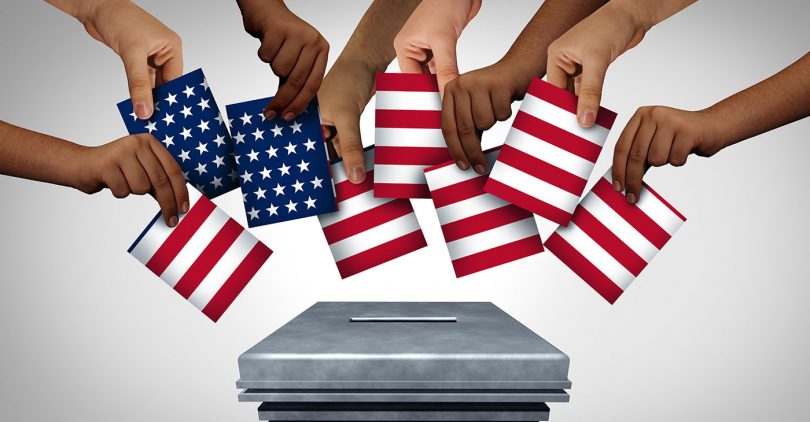By Stacy M. Brown
NNPA Senior National
Correspondent
State lawmakers in Georgia, Pennsylvania, Michigan, Arizona and other jurisdictions who continue to enact local voter suppression laws were put on notice by Democrats in the U.S. House of Representatives who passed a sweeping elections and ethics bill on Wednesday.
House Resolution 1 – the “For the People Act of 2021” – counts as a strong rebuke and counterbalance to voting restrictions considered or enacted in various Republican-led states across the country. It restricts partisan gerrymandering of congressional districts and nullifies obstacles for voters.
Further, the bill demands campaign finance clarity.
Top Democrats said the bill focuses on stopping corruption, expanding voting access, and improving accountability.
“Our purpose was to remove obstacles of participation for Democrats or Republicans,” House Speaker Nancy Pelosi declared. “That is what the law requires. That was the right thing to do. That’s what this legislation does.”

(Photo: iStockphoto / NNPA)
The bill’s passage, which now heads to the Democrat-controlled Senate, comes as the Supreme Court is poised to rule on two election rules from Arizona that could impose even more limits on the 1965 Voting Rights Act.
The cases involve the return of absentee ballots and out-of-precinct provisional ballots.
Democrats and others believe that if the court sides with Arizona Republicans, it would dismantle another Voting Rights Act section.
NDG 3/4: New Study: Innocent Blacks seven times more likely to be wrongfully convicted of murder than innocent whites
GOP lawmakers in Georgia, Pennsylvania, and Michigan have all pushed for laws that would disproportionately impact voting rights, particularly those of African Americans.
According to the Brennan Center for Justice at New York University, state lawmakers across the U.S. have filed more than 200 bills in 43 states that would limit ballot access.
Two pieces of legislation making their way to the state Senate in Georgia would restrict voting access by ending automatic voter registration, banning drop boxes for mail-in ballots, and eliminate much of the state’s absentee voting.
NDG 2/25: Officials looking for answers as winter storm exposes weaknesses in critical infrastructure services
Legislation in the Peach State would also significantly reduce early voting on weekends and essentially halt the “Souls to the Polls’ movement, a tradition for Black voters after leaving church on Sundays.
Many view that effort as a response to President Joe Biden winning Georgia in 2020 and Raphael Warnock and Jon Ossoff – both Democrats – capturing the Senate.
The U.S. House’s “For the People Act of 2021” automatically registers voters and provides voting rights to felons.
It also mandates more than two weeks of early voting, offers voting-by-mail, and expands absentee ballot drop boxes all over the country.
NDG 2/18: Democracy and White Privilege
Speaker Pelosi and other Democrats have repeatedly shot down false claims by Republicans – particularly former President Donald Trump – of widespread voter fraud.
They’ve noted that Trump and the GOP have targeted African American voters, ramping up rhetoric about fraud and conspiracy theories, specifically in heavily populated Black areas like Atlanta and Fulton County, Georgia, Detroit, Michigan, and in Milwaukee, Wisconsin.
Regardless of political affiliation, voting should be easily accessible, Speaker Pelosi stated.
However, the Speaker and others have maintained that Republicans are targeting minorities.
“They are not even coy about it. They are saying the ‘quiet parts’ out loud,” Tiffany Muller, the president of End Citizens United, a left-leaning group that aims to curtail the influence of corporate money in politics, told the Associated Press. “For them, this isn’t about protecting our democracy or protecting our elections.”
She noted that GOP’s voter suppression tactics are solely for partisan political gain.
“The anti-democratic forces in the Republican Party have focused their energy on peddling unwarranted and expensive voter restriction measures,” Stacey Abrams, who narrowly lost her 2018 Georgia bid to become the first Black female governor in U.S. history, told the Associated Press.
“We all have a right to take our seat at the table and our place at the ballot box,” Abrams exclaimed.
Despite the House’s action, the bill may be difficult to pass in the Senate, which is split 50-50 with Vice President Kamala Harris holding the tie-breaking vote.
Unlike some bills that can pass through a process called reconciliation, the voting rights bill in its current form would need 60 “yes” votes to overcome a GOP filibuster.
That means every Democrat must vote in favor of the measure, and 10 Republicans need to join them.
“When you look at what Republicans are doing across the country in statehouses to roll back access to the ballot box, we need to do what we can to establish baseline standards and best practices that allow people to register and vote in America without it being an obstacle course for them,” stated Congressman John Sarbanes (D-Maryland), the bill’s lead sponsor.
“We may not get the opportunity to make this change again for many, many decades. Shame on us if we don’t get this done.”




